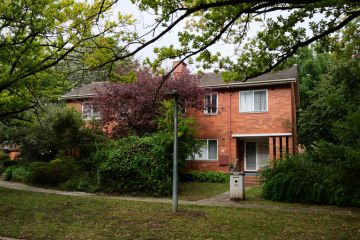Older Australians applying for first-home buyer schemes to plan for retirement

The number of older Australians buying their first home as they head towards retirement is growing as new data reveals buyers up to the age of 59 are applying for government help to break into the market.
More than 5700 Australians have signed up for the federal government’s First Home Loan Deposit Scheme, which enables first-home buyers to get into the market with as little as a 5 per cent deposit – without having to pay lenders mortgage insurance (LMI).
The latest figures from the National Housing Finance and Investment Corporation showed that while most of the applicants were aged 25 to 29 (34 per cent), 11 per cent of the applicants (more than 500) so far were aged between 40 and 59.
Grattan Institute Household Finances program director Brendan Coates said as well as those applying for government assistance, there was also an increasing number of older Australians dipping into their retirement funds to buy their first home.
“There’s a growing trend of people using some of their superannuation to pay for a house,” Mr Coates said.
He said many of these older first-home buyers were propelled into the market so late in life as a way to secure the age pension.
The first (approximately) $200,000 of the family home value was not assessed as part of the means test, he said, which meant more people were looking to buy before reaching retirement age simply as a way to qualify for the pension.
“It can mean the difference between getting the full pension or getting no pension at all,” Mr Coates said.

Domain economist Trent Wiltshire said the pension asset test was skewed towards home owners and that as this trend continued, there would be more and more people buying their first home in their 50s and still paying a loan off into their 60s and even 70s.
“What we will see more of is older households paying off a home loan later in life,” Mr Wiltshire said.
But actually getting a home loan as an older borrower was not always an easy task, according to brokers, who said while the number of more mature first-home buyers was growing, the lending rules for them varied widely.
Mortgage Choice Williamstown’s Jonathan Lee said banks were now demanding older applicants have a “plan” to pay off their mortgages while they were still working.
They needed to be able to prove how they would head into retirement without large amounts of debt, he said.
“They just want to know how they’re going to get their money back,” Mr Lee said.
He said such strategies could include buying the home, then selling it at retirement age for a cheaper property that could be paid for outright with the profits from the sale.
“Saying ‘if I die, the bank can just take my home,’ is not a clear exit strategy,” he said.
Though superannuation could be used in some instances, strict rules had to be met to ensure there was enough money to fund retirement, Mr Lee said.
Associate director of Pro-solution Private Clients Jodi McKeown said they had not seen a flood of older first-home buyers come into the business, though there were other new trends emerging.
One example is early inheritances being given to children, including those 40 and older, to help them into home ownership by parents before they die.
“A lot of people are giving their children gifts – like an early inheritance – to help them get into the market,” Ms McKeown said.
“They’ll either give a gift of money to their children or take out a loan. They’re thinking, ‘They’re going to get it when I’m dead so I may as well give it to them now’.”
We recommend
States
Capital Cities
Capital Cities - Rentals
Popular Areas
Allhomes
More






